In the world of canines, there are some dogs that seem to struggle with health issues more than others. It’s not just bad luck—certain breeds are genetically prone to specific conditions. From breathing troubles to joint pain, these issues aren’t just common; they can seriously impact a dog’s quality of life.
Understanding these breed-specific health risks is key to keeping your furry friend happy and healthy. Knowing what to expect can help you catch problems early and take proactive steps, whether you’re a new pet parent or a seasoned dog lover. After all, a little awareness now can save a lot of heartache (and vet bills) later.
So, what are the most common health issues that affect different dog breeds? And more importantly, how can you help your pup live a long, comfortable life? Let’s break it all down and make sure your four-legged buddy gets the best care possible.
Common Health Issues Dog Breeds
1. Cocker Spaniel

Cocker Spaniels may look like the picture of health with their silky coats and soulful eyes, but these adorable pups come with their own set of health concerns. Their genetics, combined with their floppy ears and compact build, make them prone to a variety of issues.
Those long, floppy ears might be adorable, but they also trap moisture, making Cocker Spaniels highly prone to ear infections, says PetMD. Bacteria and yeast thrive in warm, damp environments, leading to constant itching, redness, and foul smells. Regular cleaning and drying are non-negotiable if you want to keep your pup’s ears infection-free. If left untreated, these infections can cause serious pain and even permanent hearing loss!
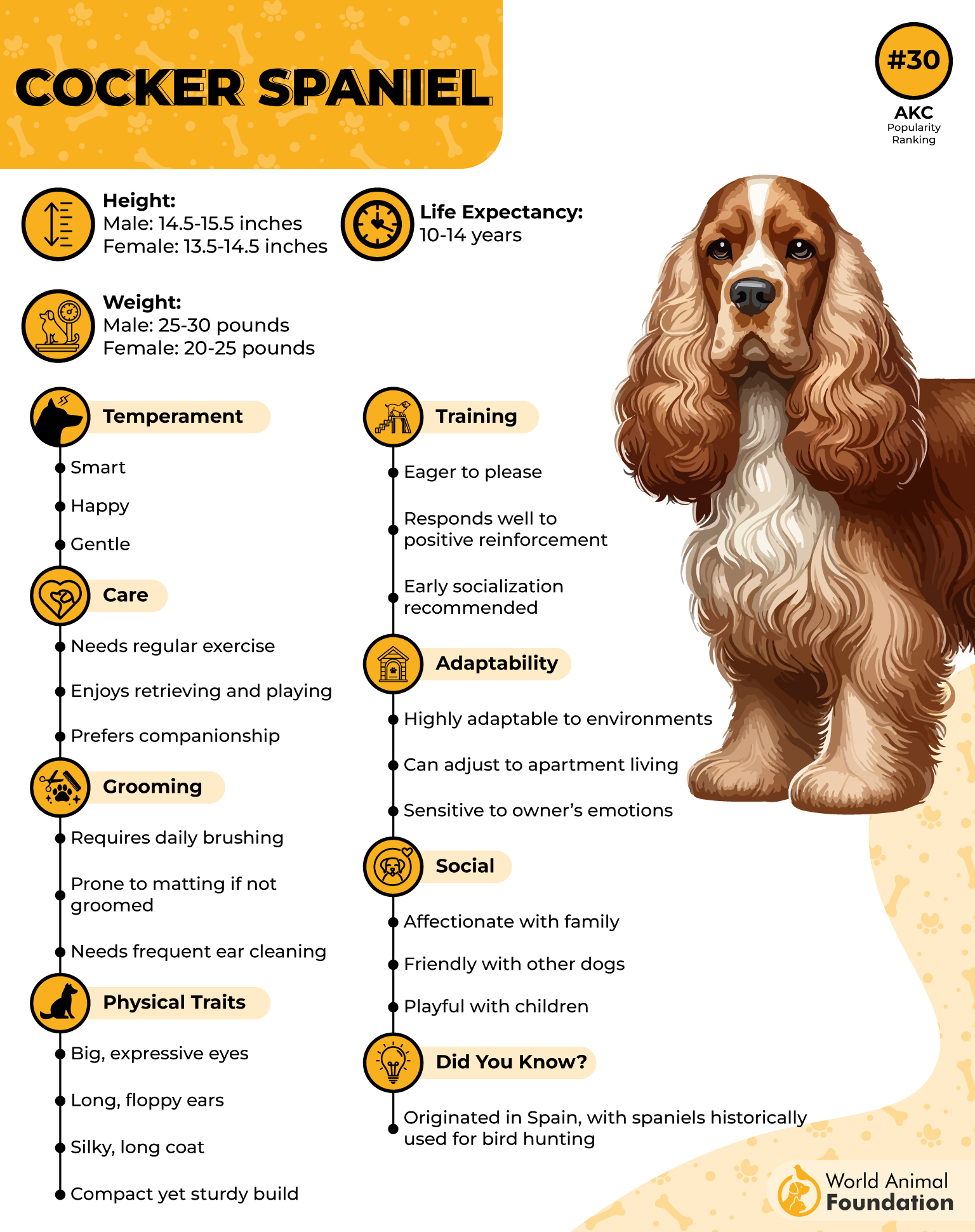
Ever noticed your Cocker Spaniel bumping into things at night? It could be Progressive Retinal Atrophy (PRA)—a genetic eye disorder that causes gradual vision loss. The tricky part? It’s painless, so dogs won’t show obvious discomfort. While there’s no cure, early diagnosis can help.
Think hip dysplasia is just for large breeds? Think again! Cockers are prone to this painful joint condition, which affects their mobility and comfort. It happens when the hip joint doesn’t fit properly into the socket, leading to arthritis.
Cocker Spaniels have a higher risk of Mitral Valve Disease (MVD), a heart condition where the valve between the heart chambers weakens over time. It often starts with a mild murmur but can progress to heart failure. A vet check-up might just save your pup’s life—early detection means better management with medication and lifestyle changes.
2. German Shepherd

According to the AKC, German Shepherds are known for their intelligence, loyalty, and devotion, but even these strong, athletic dogs aren’t invincible. They’re prone to several breed-specific health issues that can impact their mobility, digestion, and overall well-being.
German Shepherds are one of the most affected breeds when it comes to hip and elbow dysplasia. This genetic condition occurs when the joints develop abnormally, leading to arthritis and pain. You might notice your GSD struggling to get up, limping, or avoiding stairs. The best prevention? A combination of controlled exercise, high-quality nutrition, and maintaining a healthy weight.
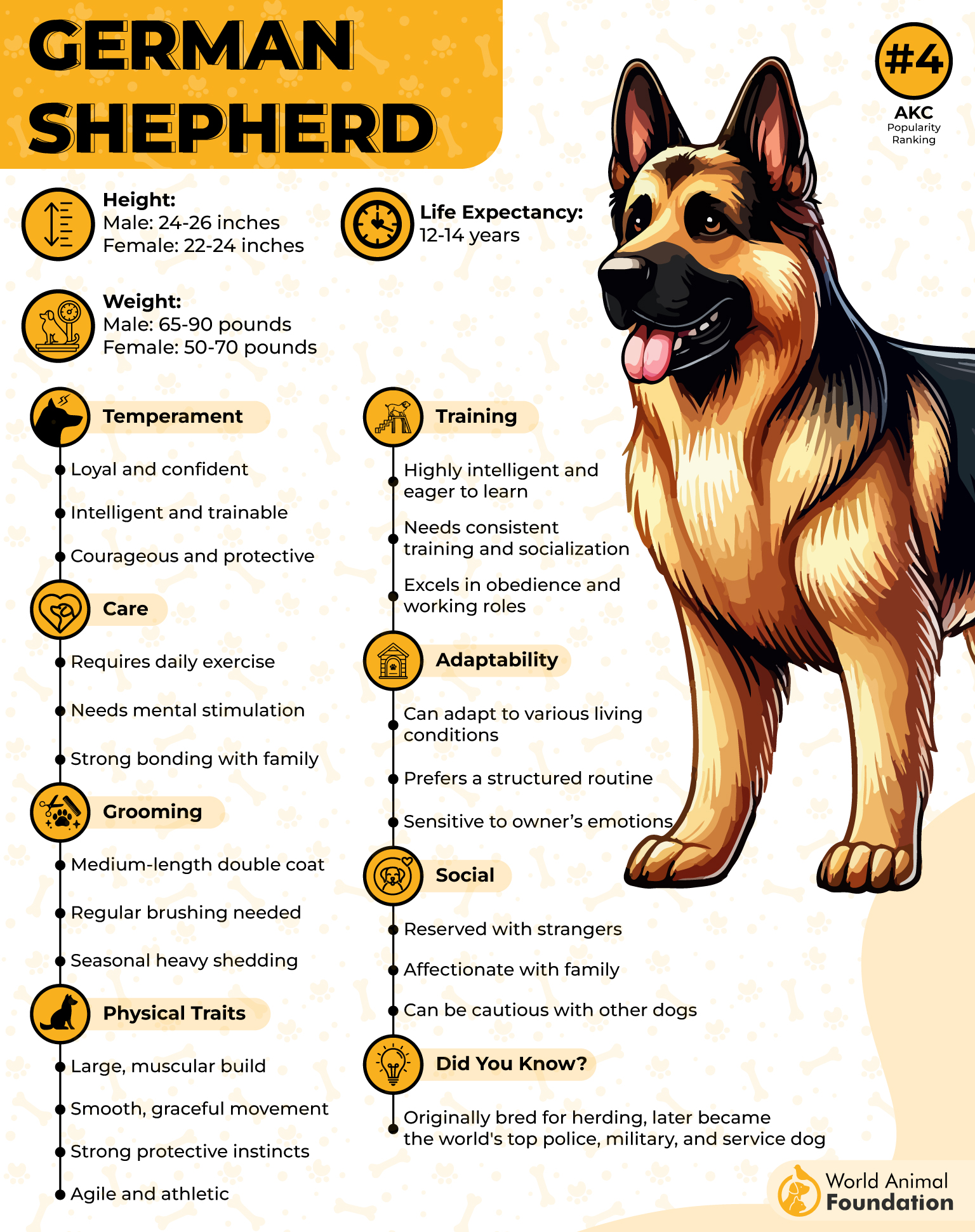
Imagine your German Shepherd losing control of their hind legs—scary, right? Degenerative Myelopathy (DM) is a progressive spinal cord disease that leads to paralysis. It starts with mild weakness and wobbling but worsens over time. While there’s no cure, physical therapy and assistive devices can help.
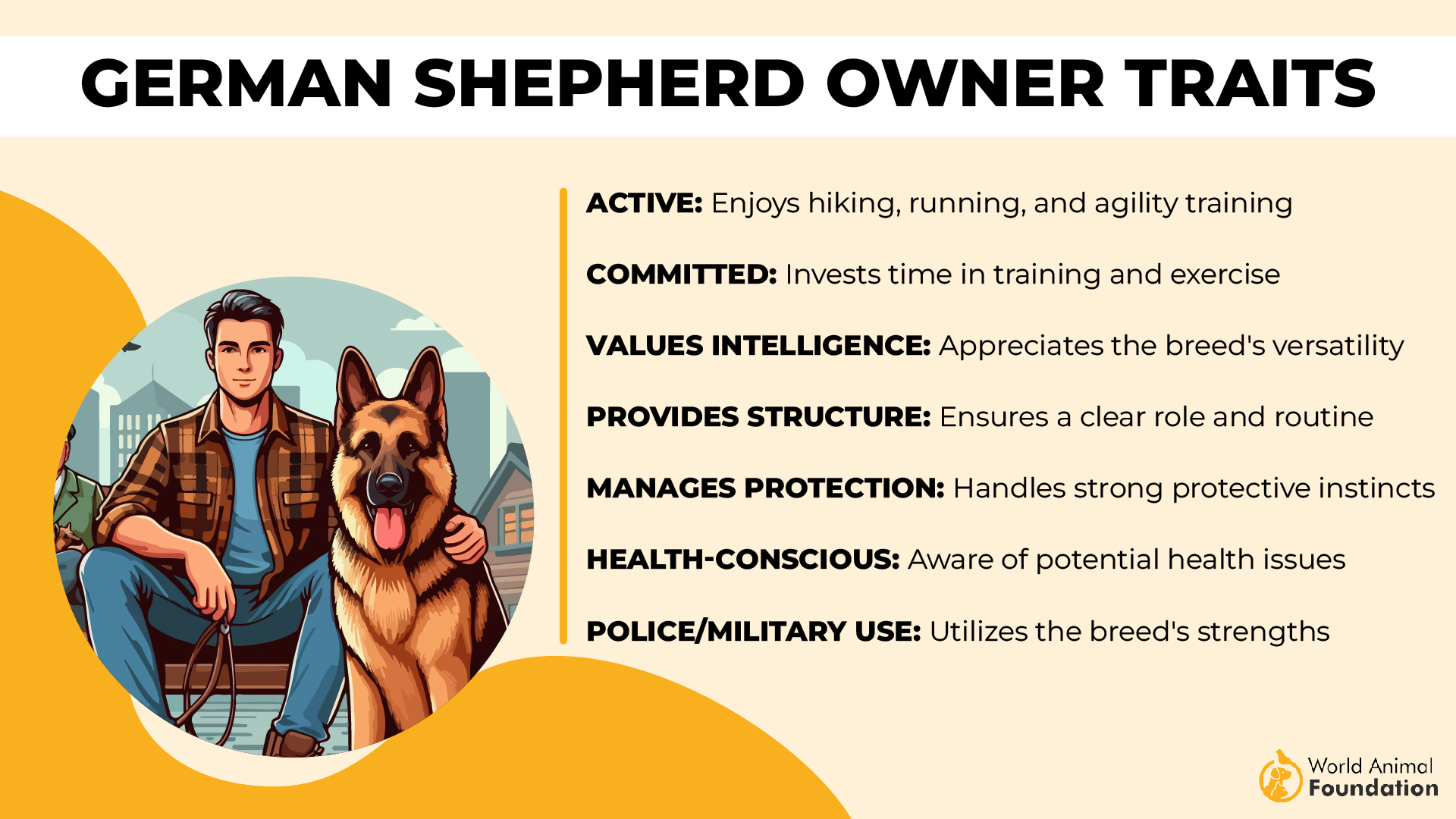
Ever heard of bloat? It’s one of the deadliest emergencies in deep-chested breeds like German Shepherds. Their stomach can fill with gas and twist, cutting off blood supply and causing shock. Without immediate surgery, it’s fatal.
If your German Shepherd is losing weight despite eating plenty, suffering from chronic diarrhea, or passing greasy stools, Exocrine Pancreatic Insufficiency (EPI) could be the culprit. This condition occurs when the pancreas stops producing digestive enzymes, making it impossible for dogs to absorb nutrients. Thankfully, with the right enzyme supplements, affected dogs can live normal, happy lives.
3. English Bulldog

English Bulldogs are undeniably adorable with their wrinkled faces, stocky build, and lovable personalities. But let’s be real—this breed comes with a long list of health concerns. Their unique appearance makes them prone to serious issues that every Bulldog owner should know about. Think Bulldogs are just lazy couch potatoes? Well, some of their health problems make even short walks a challenge!
Ever noticed how Bulldogs snort, snore, and struggle to breathe after mild activity? That’s because of Brachycephalic Obstructive Airway Syndrome (BOAS), caused by their flat faces. Their narrow nostrils, elongated soft palate, and small windpipes make it hard to get enough air. In severe cases, surgery is needed to widen the airways.
Bulldogs’ signature wrinkles may look charming, but they trap moisture and bacteria, leading to painful infections. If you don’t clean those folds regularly, your pup might develop red, smelly, irritated skin. Use vet-approved wipes and dry their wrinkles after cleaning—no one wants a Bulldog with a yeast infection on their face!
You’d think joint issues are just for senior dogs, right? Not for the Bulldogs! Hip and elbow dysplasia are genetic conditions that make walking painful, even in young dogs. English Bulldogs are low-maintenance when it comes to exercise, says Petplan. Since Bulldogs aren’t built for long walks anyway, low-impact exercises like swimming can help keep their joints healthy.
Ever seen a Bulldog with a red, swollen lump in the corner of its eye? That’s cherry eye, a condition where the third eyelid gland prolapses. While it might look dramatic, it’s common in Bulldogs. Some cases resolve on their own, but others need surgery to prevent discomfort and chronic irritation. Bulldogs and eye problems go hand in hand!
4. Labrador Retriever

According to PetMD, Labrador Retrievers are friendly, energetic, and one of the most popular family dogs. But did you know that their love for food and active nature can lead to serious health problems? Labs are generally strong and resilient, but they’re also prone to certain genetic and lifestyle-related conditions.

Labradors are big, bouncy, and always on the move, but their joints often struggle to keep up. Hip and elbow dysplasia—where the joints don’t form properly—can cause pain, stiffness, and mobility problems. While genetics play a role, excess weight and too much high-impact exercise can worsen things.
Let’s be honest—Labs are food-obsessed. They’ll happily gobble up anything in sight, even if it’s not food! This love for eating makes them highly prone to obesity, which leads to joint problems, diabetes, and heart disease. Portion control, a balanced diet, and regular exercise are key to keeping them fit and healthy.
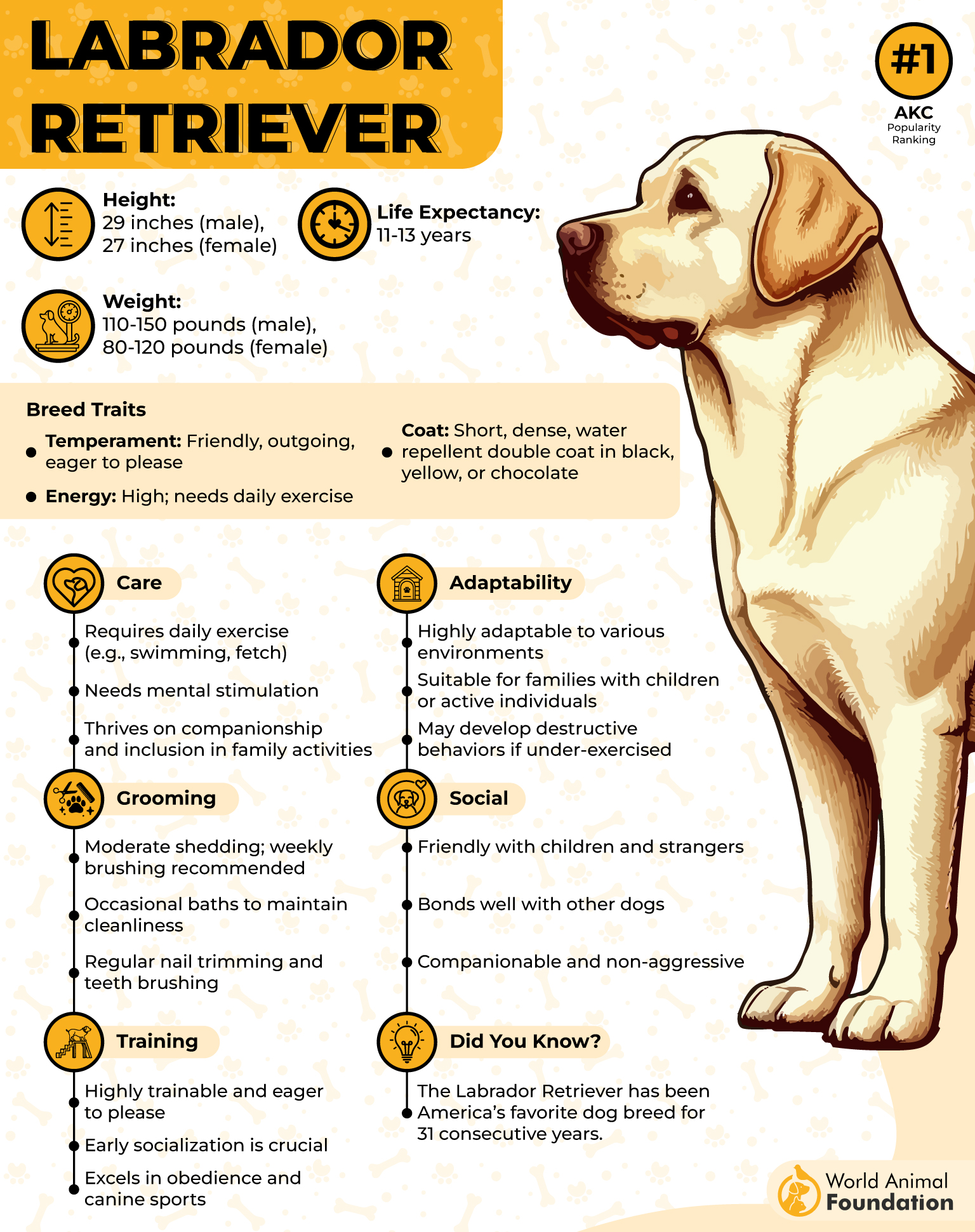
A Labrador’s adorable floppy ears might look cute, but they create the perfect warm, moist environment for bacteria and yeast. If your Lab is shaking their head, scratching their ears, or has a funky smell coming from them, an infection is likely.
Imagine your playful Lab slowly losing their vision—heartbreaking, right? Progressive Retinal Atrophy (PRA) is a genetic disease that causes the gradual deterioration of the retina, leading to night blindness and, eventually, full blindness. While there’s no cure, responsible breeders test for PRA, and keeping your Lab’s diet rich in antioxidants may help slow progression.
5. Australian Shepherd

Australian Shepherds are smart dogs, they are energetic, and always ready for action. Whether they’re herding sheep or chasing a frisbee, these dogs never seem to run out of energy! But beneath their lively personality, Aussies are prone to several health concerns that owners should watch out for. Some Australian Shepherds have trouble seeing, or why are they more sensitive to medications? Let’s break it down!
With all that jumping and running, you’d think Australian Shepherds have unbreakable joints—but that’s not always the case. Dogs with hip or elbow dysplasia need special care, says PetMD. Hip dysplasia can cause pain, stiffness, and difficulty moving. It’s often genetic, but keeping your Aussie at a healthy weight and giving them joint supplements can help prevent early arthritis.
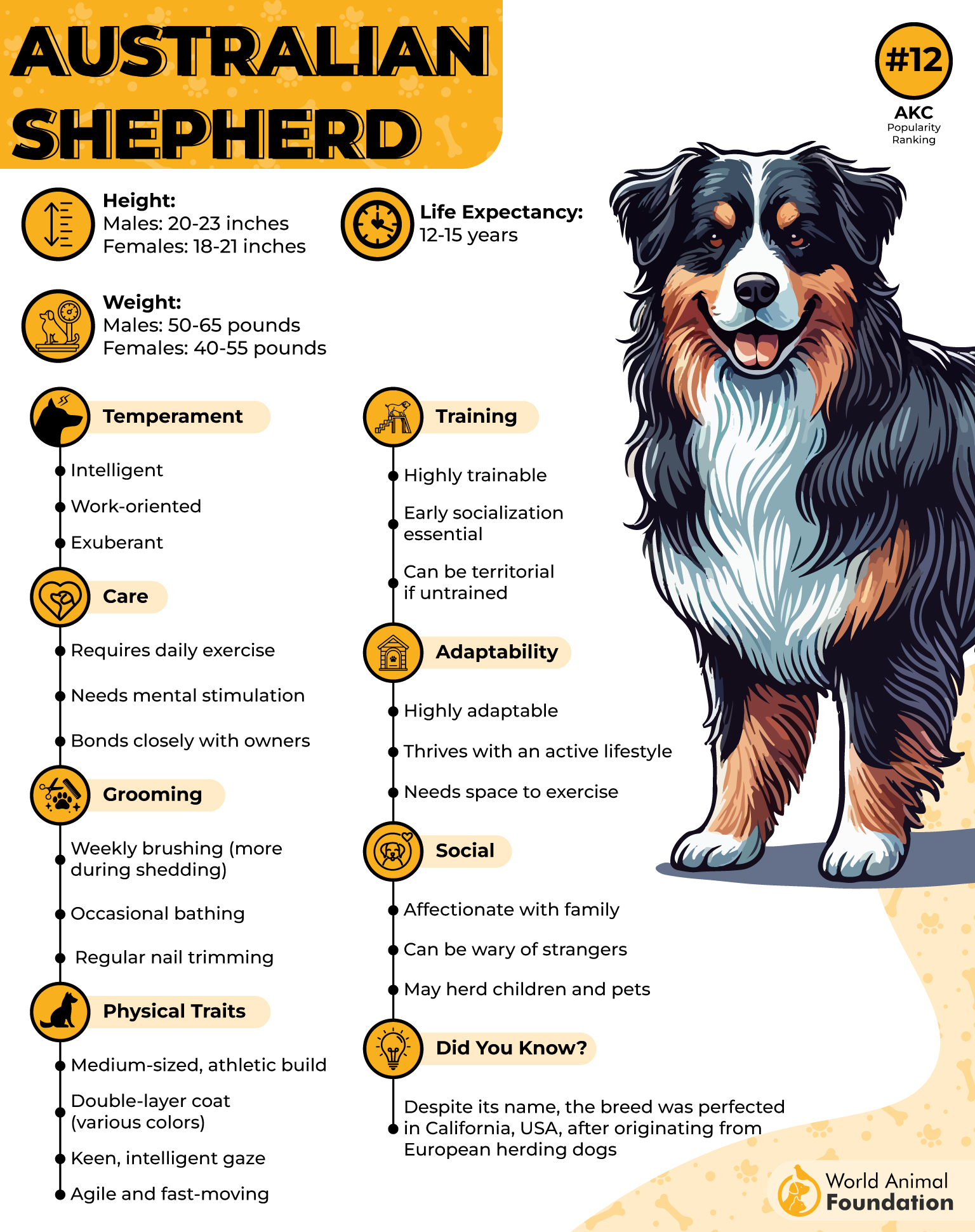
One of the most alarming conditions in Australian Shepherds is epilepsy, which causes sudden seizures. These episodes can be mild (twitching) or severe (full-body convulsions), and while the exact cause isn’t always clear, genetics play a big role. If your Aussie has epilepsy, a consistent routine, stress management, and vet-prescribed medication can help control it.
Australian Shepherds may have striking blue eyes, but those beautiful eyes can come with hidden problems. Collie Eye Anomaly (CEA) is a genetic disorder that affects the retina, leading to vision impairment or even blindness. Responsible breeders test for CEA, but if your Aussie has it, there’s no cure.
Did you know that some Australian Shepherds can’t process certain medications? Thanks to a genetic mutation called MDR1 (Multi-Drug Resistance Gene), common drugs like ivermectin (used for deworming) and some anesthesia drugs can be toxic. A simple genetic test can determine if your Aussie has MDR1, helping you avoid dangerous medications.
6. Border Collie

With all their sprinting and jumping, you’d think Border Collies have indestructible joints—but that’s not always true. Hip dysplasia, a condition where the hip joint doesn’t fit properly, can cause pain, stiffness, and arthritis over time. The worst part? It’s often genetic!
According to PetMD, Border Collies have sharp eyesight. Collie eye anomaly can cause malformations of the eyes, but some suffer from Collie Eye Anomaly (CEA), a genetic condition that affects their retina and optic nerve. This can lead to vision loss or blindness in severe cases. There’s no cure, but early testing and vet checkups help manage it.

Epilepsy is one of the scariest health issues in Border Collies. This condition causes sudden, uncontrollable seizures that can range from mild (twitching) to severe (full-body convulsions). While it’s usually genetic, stress and environmental triggers can make it worse. Medication and a stable routine help keep seizures under control.
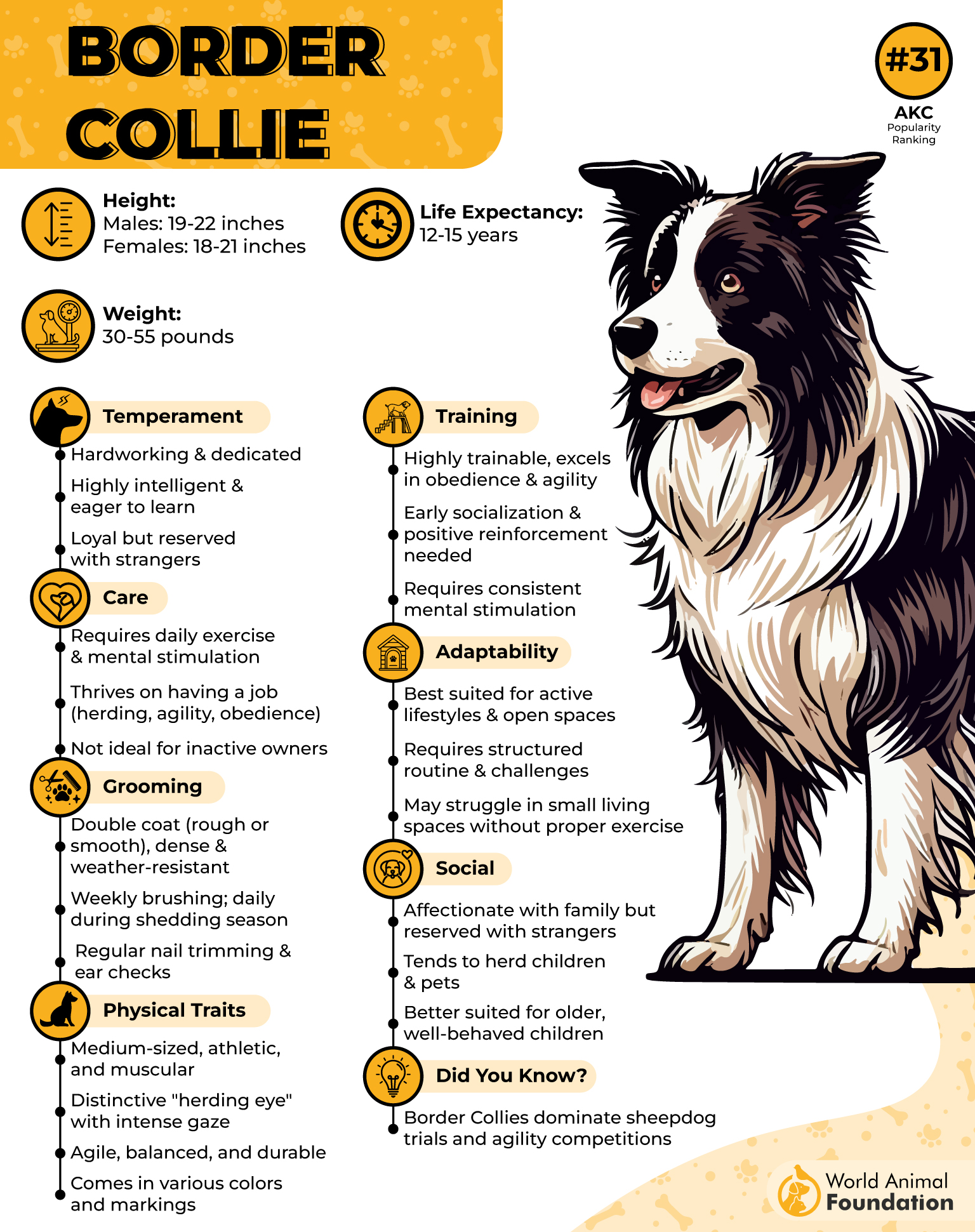
Border Collies with merle (spotted) coats are more likely to be born deaf in one or both ears. This happens because of a lack of pigment in the inner ear, which affects their hearing ability. If your Collie doesn’t respond to their name or seems startled easily, a hearing test can confirm whether they have partial or full deafness.
Border Collies grow fast, but sometimes, their bones develop too quickly, leading to Osteochondritis Dissecans (OCD). This condition affects the shoulders, elbows, or knees, causing limping, stiffness, and pain—especially in young dogs. Avoiding high-impact activities in puppies and feeding a proper diet can help reduce the risk.
7. French Bulldog

Ever noticed how Frenchies snore, grunt, or struggle to catch their breath after just a short walk? That’s because of Brachycephalic Airway Syndrome (BAS), caused by their flat faces and narrow airways. This can lead to breathing difficulties, overheating, and even fainting in extreme cases. Avoid intense exercise, keep them cool, and consider surgery in severe cases to help them breathe easier!
French Bulldogs don’t handle heat well—at all. Their short noses make it hard to pant effectively. Hot weather, exercise, or even a warm room can quickly lead to heatstroke. Always provide shade, air conditioning, and fresh water, and never leave them outside for too long!
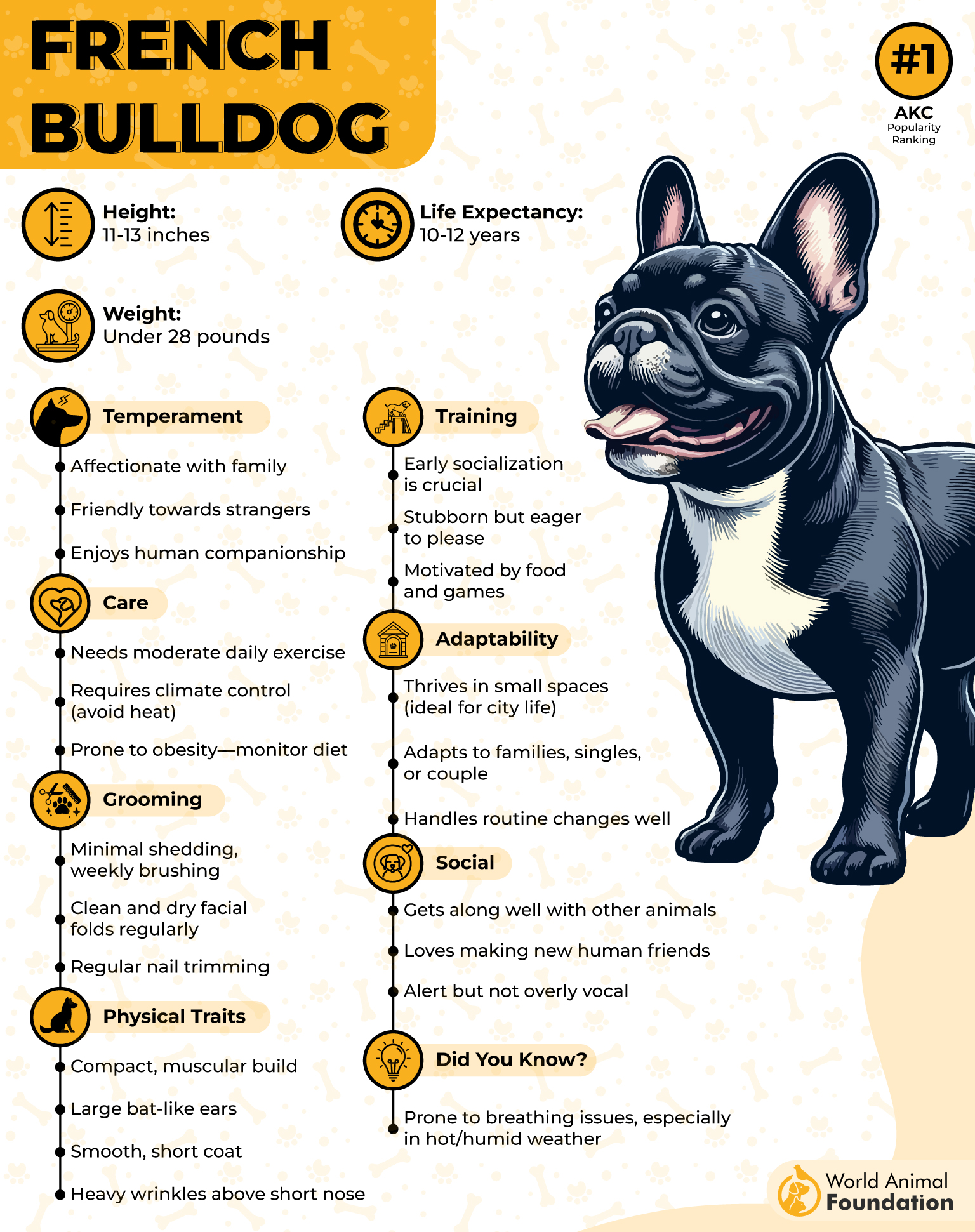
Frenchies are susceptible to allergies, from food to grass, dust, and even certain fabrics. If you see your pup constantly licking their paws, scratching, or developing red patches, they might have an allergy. A balanced diet, medicated shampoos, and vet-approved treatments can help keep their skin healthy.
Frenchies are compact, small dogs with a short muzzle, says PetMD. French Bulldogs have short, compact spines, which puts them at risk for Intervertebral Disc Disease (IVDD)—a painful condition where the discs in their spine bulge or rupture, leading to pain, mobility issues, or even paralysis. Jumping off furniture, rough play, and obesity can make things worse, so use ramps, support their back, and keep their weight in check!
Ever noticed a red, swollen bump in the corner of a Frenchie’s eye? That’s cherry eye, caused by a prolapsed tear gland. While it’s not painful initially, it can lead to dry eyes, irritation, and infections. Surgery is often needed to correct it permanently. The sooner it’s treated, the better!
Conclusion
When it comes to common health issues in dog breeds, both purebred and mixed breed dogs can experience various health issues that pet owners should be aware of. Certain popular dog breeds are at a higher risk for hip and elbow dysplasia and progressive retinal atrophy due to genetic disorders. Meanwhile, small dogs and toy breeds, such as the Cavalier King Charles Spaniel and French Bulldog, often suffer from brachycephalic airway syndrome, respiratory problems, and elongated soft palate issues, making breathing difficult.
Brachycephalic dog breeds are also prone to dental, periodontal, and gum disease due to their compact skull structure. Regular veterinary medicine checkups and early diagnosis of health concerns can help prevent ear infections, skin allergies, and skin infections. For certain dog breeds, common health concerns like heart disease, kidney disease, intestinal parasites, and urinary tract infections can develop over time, particularly in senior dogs and older dogs. Floppy ears in breeds increase the risk of ear infections if not properly cleaned.
Intervertebral disc disease is another serious issue affecting breed dogs, especially those with long backs, like Dachshunds. Many dog owners rely on pet insurance and pet insurance plans to manage the costs associated with dog health issues and health conditions that may arise throughout a dog’s life. Maintaining a healthy weight, a balanced diet and encouraging regular exercise can help mitigate many of these common illnesses and keep your dog healthy. Whether you own large, small, or other dog breeds, paying close attention to your dog’s body, maintaining good health, and seeking early diagnosis for common health problems will help your pet thrive.


